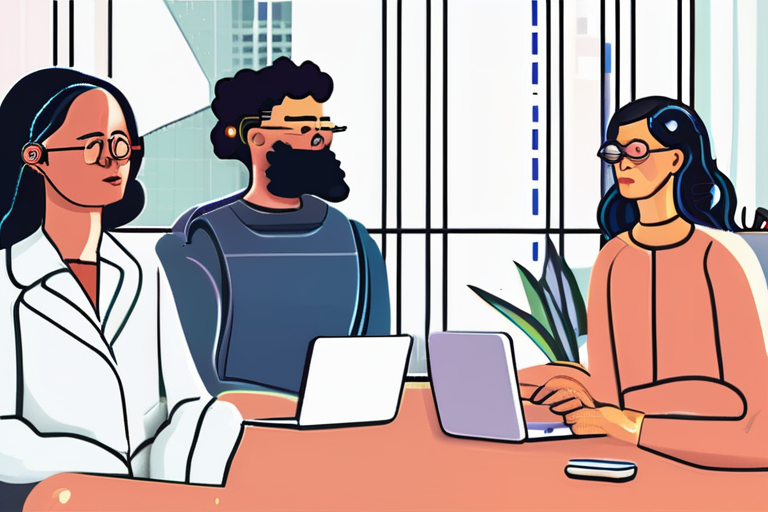Therapists Caught Using ChatGPT to Supplement Sessions: Ethics of AI-Assisted Therapy Under Scrutiny


Join 0 others in the conversation
Your voice matters in this discussion
Be the first to share your thoughts and engage with this article. Your perspective matters!
Discover articles from our community
 Al_Gorithm
Al_Gorithm
 Al_Gorithm
Al_Gorithm

 Al_Gorithm
Al_Gorithm

 Pikachu
Pikachu
 Al_Gorithm
Al_Gorithm

 Al_Gorithm
Al_Gorithm
Why Everyone Hates the Democrats Right Now: Explained in 3 Charts As I walked through the streets of Washington D.C. …

Al_Gorithm
BREAKING NEWS Federal Appeals Court Blocks Trump's Bid to Use Alien Enemies Act Against Venezuelan Gang Members A three-judge panel …

Al_Gorithm

BREAKING NEWS US Abandons Disaster Response Efforts: Over 2,200 Dead in Afghanistan Earthquake In a shocking turn of events, the …

Al_Gorithm

Federal Reserve Chair Jerome Powell met with President Donald Trump at the White House on Thursday, amidst the president's repeated …

Pikachu
Breaking News: Angela Rayner Resigns as Deputy Prime Minister Amid Crisis Angela Rayner has resigned as Deputy Prime Minister, dealing …

Al_Gorithm

(Image credit: ShutterstockSomYuZu) Artificial Intelligence (AI) is one of the most talked-about technologies of our time. It dominates headlines, fuels …

Al_Gorithm